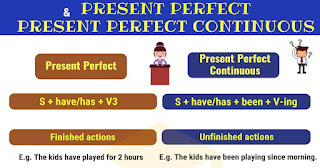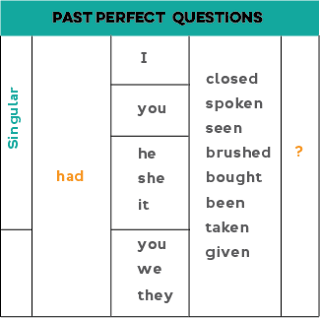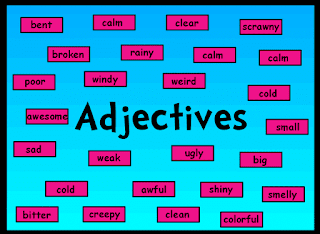Present Perfect vs. Present Perfect Progressive
We use both of these tenses for finished and unfinished actions.
The present perfect simple can be used (often with 'since' and 'for') to talk about unfinished actions that started in the past and are still true in the present. It's often used with stative verbs:
- I've known John for three years.
- She's been living here for three years.
- They've lived in London since 2004.
- They've been living in London since 2004.
- I've studied French for ten years.
- I've been studying French for ten years.
- He's worked at the company since 2009.
- He's been working at our company since 2009.
1: The present perfect continuous can be used to emphasize the length of time that has passed. The present perfect simple is generally neutral:
- They've been waiting for hours! (This emphasizes the length of time).
- They've waited for hours. (This doesn't emphasize the length of time).
- She's drunk three cups of coffee this morning.
- She's drunk at least a litre of coffee today.
- (NOT:
she's been drinking three cups of coffee this morning).
- I've been reading the book you recommended. (I'm enjoying it, but I'm not finished).
- I've read the book you recommended. (I've finished it, so we can talk about it).
- Have you read the book yet?
- She's finished her work already.
- I've eaten dinner, so let's go out.
- She's done all her homework, so she can relax this evening.
- I've made a cake. Would you like some?
- I've been eating dinner, so there are plates all over the table.
- She's been doing her homework, so she's tired.
- I've been making a cake, that's why the kitchen is such a mess.
- She's been running a lot recently. (She doesn't usually do this).
- Usually I study at home, but I've been studying in the library for the last week.
Retrieved from
https://www.perfect-english-grammar.com/present-perfect-simple-or-present-perfect-continuous.html




Comentarios
Publicar un comentario